Looking for more ways to improve your client’s potential for employment? Good work begins at home!
Chores and Employment
Parent expectations (Lindsey, 2014) and youth engagement in chores at home (Lindsey, 2014; Weyman, 2014) are considered to be facilitator of employment for youth with disabilities. Completion of chores at home is appropriate participation in real life, meaningful self-care and an expectation for adulthood.
The Council of Exceptional Children (CEC) describes independent living skills as predictors of competitive employment. Such skills include cooking, housekeeping, home maintenance, and advocate for teaching these skills in the home. The CEC also advocate for collaborating with the family to understand the cultural norms/values around these skills in the home and to focus on person-centered planning.
In a case study where interventions focused on increasing participation in chores at home (Harr, 2011), the youth exhibited increased:
- competence in participation of the tasks
- confidence
- participation in tasks at work
Chores and Youth with Disabilities
As I work with families, I am learning that participation in chores at home seems to be based on three themes:
- Parental expectations: some of our families are so used to doing for their children that they have not considered what their child is able to do
- Routines: some seemingly typical chores may not be present in the family routine, e.g., city dwellers who don’t engage in yardwork, or families who do not eat a meal at the table regularly
- Busi-ness: extraordinarily busy/stressed families may not take the time to encourage their children to include chore based routines in their day
As a parent of children without disability, I know how hard it is to get kids to start and complete chores. Performing chores at home is even more complicated for youth with disabilities. In addition to universal challenges such as poor motivation, or disinterest in engaging in chores, youth with disabilities may have difficulties in physically performing the tasks.
Despite these challenges, it is still important to encourage engagement in these activities. Chores can:
- Promote a sense of responsibility at home
- Increase proficiency in self-care and independent living skills
- Increase opportunity for practice of skills that may be used in a job setting!
Discussing Chores with Parents/Families
It is our role as therapists to discuss with parents the connection between the youth’s strengths and their ability to perform certain chores. Often, I find that parents did not realize that their kids might be capable of performing certain chores.
During the evaluation process, I interview parents and ask them about their child’s participation in specific chores. Most times, this conversation ends up being educational for both of us.
- Parents state, “Well, I didn’t know he could carry a heavy box in school. I bet he could carry groceries in from the car” or “We have a Roomba so we don’t vacuum.”
- Or I might reflect, “who knew that this student loves to fold clothes…maybe this translates to a job task!”
Examining Participation In Chores
So how does one decide what to ask? What does examination of participation in chores look like in real life?
Every family has its own routine and environmental setup that we need to understand. So start with a parent and youth interview!
Consider the tasks that may be performed around meal preparation.
Ask the youth and their parents which items are performed. Through your parent and youth interview, you will likely discover at least one or two tasks that are currently not being performed…that could be! This, in and of itself, can be tremendously empowering to youth and their families.
You may identify, for example, that the youth can carry condiments but not a stack of plates; or put items in the top rack of dishwasher but not the bottom.
Further inquiry may reveal a dynamic balance problem or difficulty bending or squatting. You may discover that therapy remediation of these tasks and/or recommendation of an adaptation will increase the youth’s ability to complete the task. Further, therapeutic interventions can often address the underlying impairment or limitation that prevents/limits competence with chores.
Enhancing Participation in Chores
How can you incorporate participation in chores into your clinical practice?
- ASK youth and families about participation in specific chore related tasks. Use this checklist to get started.
- PARTNER with parents by educating them on the link between chore participation.
- USE widely available infographics to educate families on participation in chore tasks. A quick search on Pinterest will pull up task lists. Here’s a chore chart that uses visual reminders that could also be used for sequencing tasks and a checklist that includes rewards.
- SHARE resources with educators on strategies to teach independent living skills such as this Fact Sheet, Effective Practices and Predictors of Post-School Success, evidence-based task analysis work sheets, and lesson plans to teach home maintenance skills.
- REMEDIATE tasks that are related to vocational goal areas and home routines. For example, if youth cannot carry a gallon of milk into the house, use your task analysis skills to determine what neuromuscular pre-requisites are missing that therapy can support.
- ENCOURAGE home/school communication about daily activities that have a chore component (cleaning up, putting items in a trash can, putting lunch items away). Participation in these routines based skills will maximize participation in chore routines that occur at home and school.
As therapists whose goal is participation in real life activity, consider chores an integral part of your evaluation and interventions for children and youth with disabilities. Watch out kids, because I think your chore list just got longer!
Guest Contributor: Connie C Johnson, PT, DScPT is a school-based PT and creator of Fit4Work, a program which supports physical fitness for youth with disabilities and enhances their potential for employment. She authored the book entitled Fit4Work: Fitness for Vocational Tasks for Youth with Disabilities. Connie is Board-Certified Clinical Specialist in Pediatric PT. She is the Region V Director for the American Physical Therapy Association’s Academy for Pediatric Physical Therapy. She enjoys sharing knowledge to support best practice for children & youth with disabilities via her Fit4Work blog, live presentation and webinars.
Join the author, Connie Johnson in New York on March 19 for Fit4Work! Work Capacity Evaluation and Interventions for Youth with Disabilities for an “All Evidence-based, All Practical!” continuing education course for PTs, OTs, PTAs and COTAs.
References
Division on Career Development and Transition of the Council for Exceptional Children. Self-Care and Independent living Skills Fact Sheet. Retrieved January 26, 2018 from https://higherlogicdownload.s3.amazonaws.com/SPED/34aee1c1-7ded-4d59-af82-da4af08d5fc4/UploadedImages/DCDT-Fact-Sheet_IndependentLiving_Delphi_Final.pdf.
Dunn, L., Magalhaes, L. C., & Mancini, M. C. (2014). Internal structure of the children helping out: Responsibilities, expectations, and supports (CHORES) measure. American Journal of Occupational Therapy, 68(3), 286–295. doi:10.5014/ajot.2014.010454.
Harr N, Dunn L, Price P. (2014). Case study on effect of household task participation on home, community, and work opportunities for a youth with multiple disabilities.
Work,39(4):445-53. doi: 10.3233/WOR-2011-1194
Johnson, C. (2016) Fit4work: Fitness for vocational tasks for youth with disabilities. United States: Createspace Independent Publishing Platform. Johnson CC, Rose DS. School-Based Work Capacity Evaluation in Young People With Intellectual Disabilities: 2 Case Reports. Pediatr Phys Ther. 2017 Apr;29(2):166-172. doi: 10.1097/PEP.0000000000000367. PubMed PMID: 28350776.
Lindsay, S., McDougall, C., Menna-Dack, D., Sanford, R., & Adams, T. (2014). An ecological approach to understanding barriers to employment for youth with disabilities compared to their typically developing peers: Views of youth, employers, and job counselors. Disability and Rehabilitation,37(8), 701–11.
National Technical Assistnace Center on Transition. NTACCT
Wehman, P., Sima, A., Ketchum, J., West, M., Chan, F., & Luecking, R. (2014). Predictors of successful transition from school to employment for youth with disabilities. Journal of Occupational Rehabilitation, 25(2), 323–334.
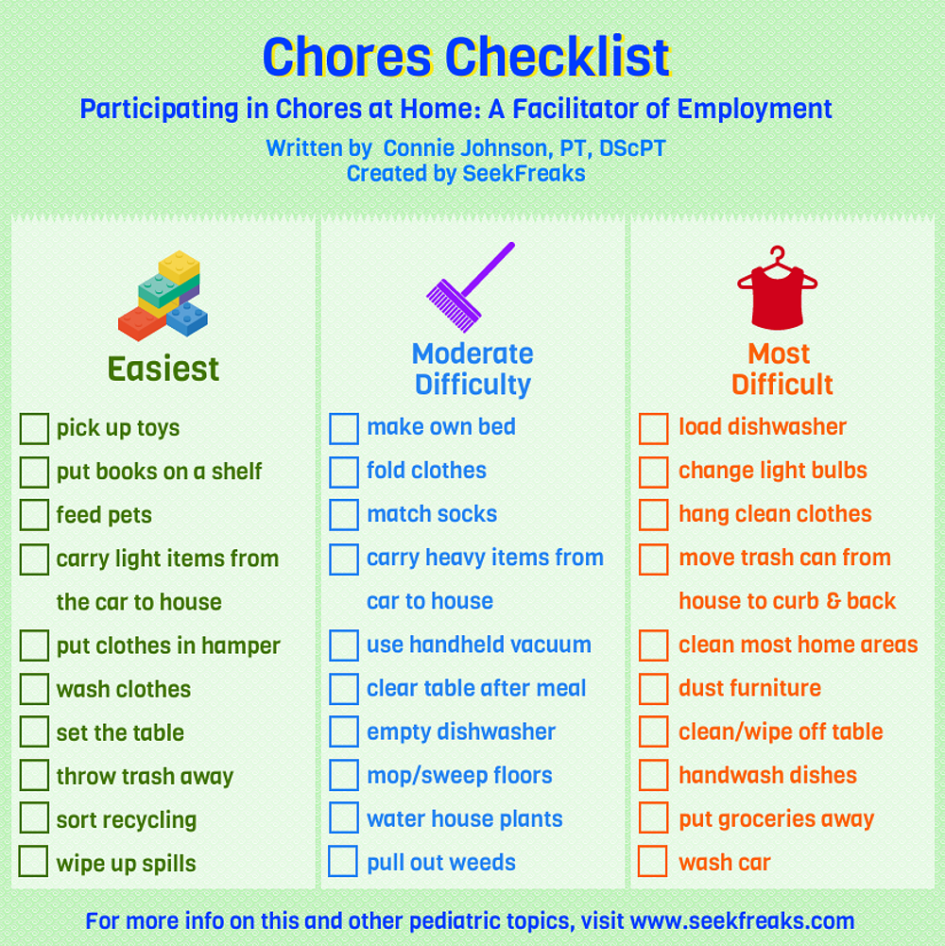
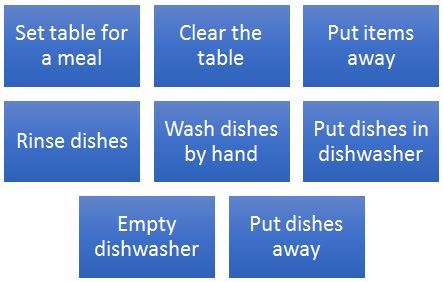
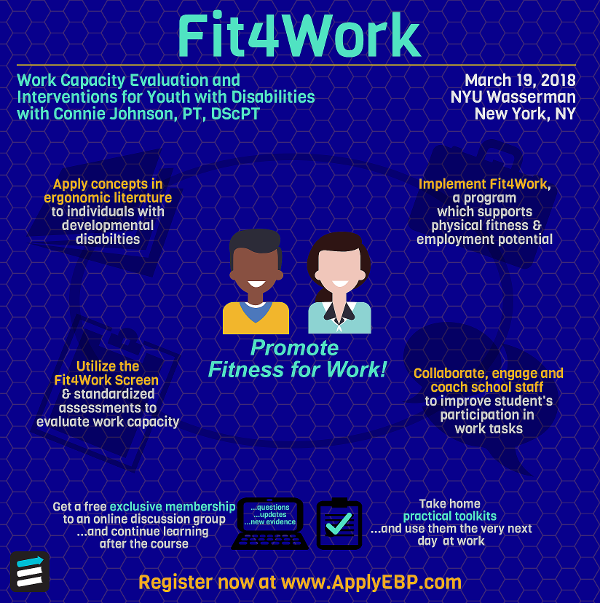
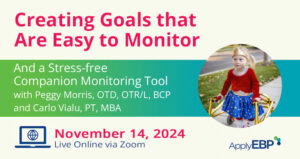



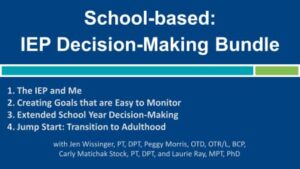
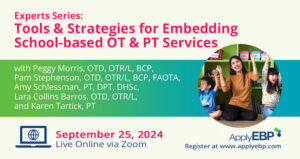

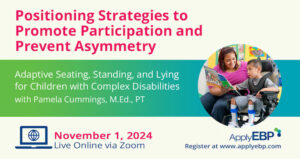
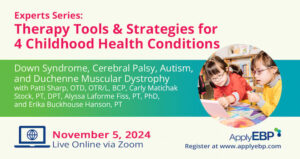

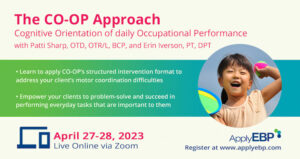
December 22, 2020 at 1:10 am
please How do you get a job in America